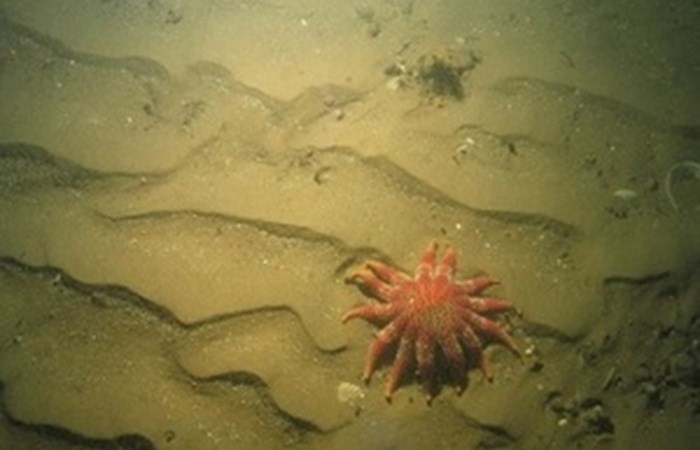Department for Environment, Food and Rural Affairs

Twenty-three new areas along the UK coast were today announced as the latest Marine Conservation Zones (MCZs) to be awarded environmental protection by the government, extending the countrys Blue Belt to cover over 20% of English waters and providing vital protection for the diverse array of wildlife in our seas.
Marine Environment Minister George Eustice announced the new sites, which will protect 4,155 square miles of our most stunning and rich marine habitats and bring the total number of MCZs in waters around England to 50, covering 7,886 square miles - an area roughly equivalent to the whole of Wales, or 13 times the size of Greater London.
The new MCZs will cover areas across the country from as far north as Farnes East off the coast of Northumberland down to Lands End in the South West, and will protect 45 different types of habitat, geological features and fascinating species - including stalked jellyfish and spiny lobsters.
Welcoming the designation of the new sites, Marine Environment Minister George Eustice said:
As an island nation, the UK is surrounded by some of the richest and most diverse sea life in the world - from the bright pink sea-fan coral colonies off the south-west coast, to the great chalk reef stretches in the east. Its vital that we protect our marine environment to ensure our seas remain healthy, our fishing industry remains prosperous and future generations can enjoy our beautiful beaches, coastline and waters.
By designating these new Marine Conservation Zones and creating a Blue Belt of protected areas around the country, we can better protect our environment through careful marine management in years to come.
The 23 additional sites are the second of three planned phases of MCZs; the first phase covered 3,731 square miles of water over 27 sites, while a third phase of proposed MCZs will be put out to wider public consultation in 2017, and designated in 2018.
The announcement has also been welcomed by a number of campaign groups. Joan Edwards, The Wildlife Trusts head of Living Seas, said:
Marine protection is vital to us all, no matter where we live. Our seas provide the oxygen for every second breath we take, the fish on our plates and so much more. The designation of 50 Marine Conservation Zones to date is a strong step forward but there is much still to do. It is vital that appropriate management is implemented as soon as possible. We will continue to work with government to ensure that this happens and to achieve the much-needed ambitious and comprehensive third and final tranche.
Marine Conservation Zones protect a range of nationally important marine wildlife, habitats, geology and geomorphology, and can be designated anywhere in English waters. They were introduced to halt the deterioration of the UKs marine biodiversity and provide legal means to deliver the UKs international marine conservation commitments.
Todays announcement supports further work by government to protect the marine environment, as new consultations on Special Areas of Conservation (SACs) for harbour porpoise and Special Protection Areas (SPAs) to protect feeding and bathing areas used by iconic birds, such as spoonbills in Poole Harbour and puffins on the Northumberland coast, are expected to launch later this month. This adds to the 37 SACs and 43 SPAs already designated in English waters.
Natural England and the Joint Nature Conservation Committee (JNCC) provided the environmental advice and evidence that underpins these designations. Natural England Chairman, Andrew Sells, said:
This is a fantastic outcome for the marine environment and brings us a great step closer to achieving the ambition of a Blue Belt a network of marine areas protecting wildlife surrounding the UK.
JNCC Chief Executive Marcus Yeo said:
This is another major step forward in protecting the diverse range of habitats and species found in the seas around England. JNCC look forward to working with public authorities to achieve effective management of the new sites.
For more information please contact Defra press office on 020 7238 6600 or out of hours on 0345 051 8486.
